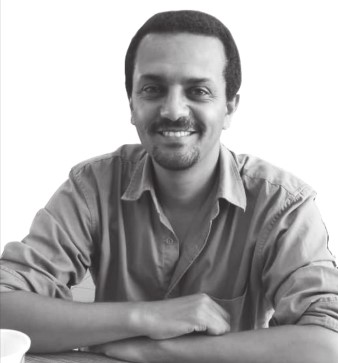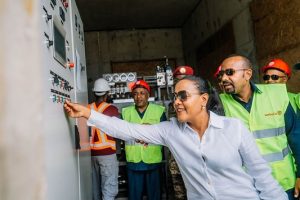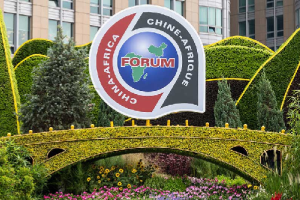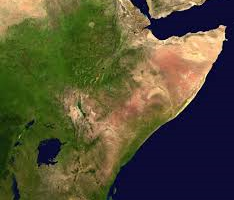
The COVID-19 pandemic that took lives of close to forty thousand people and left a million others in dire situations has changed news headlines all over the world. In Ethiopia, however, the news items in broadcast, print and social media continued to give wide coverage both to the virus and the Grand Ethiopian Renaissance Dam and the justifications behind the latter’s coverage is that Ethiopia’s right to achieve energy and food security for its people.
In a basin hard hit with recurrent droughts, conflict and now a serious health concern from COVID-19, an investment in the energy sector is a delayed justice for millions of people who struggled to access basic human life services to survive. Generating energy is an opportunity to promote constructive socialization for common economic development gains and a more secured health care system. Hence, Ethiopia contrary to portrayals of withdrawal by Egypt from the US mediated negotiations was rethinking on positioning its stances. This emanates from its right to develop and use the Nile water without compromising the share of the remaining riparian countries.
Ethiopia’s decision to leave the negotiation table and distance itself from infectious around the table was timely. It avoided a possible political disease that can potentially harm relations and cause irreversible system damage to the modalities of Nile water use in the basin. Cairo unquarantined, however, is sneezing across borders spreading the Nile COVID-20 in the basin to infect and destabilize governments while Ethiopia is progressing building an all uplifting and inclusive regional energy project that continued to stand tall every day.
Energy in any form grants firm and unshakable foundation for a lasting socio-economic prosperity in the contemporary world order. Ethiopia’s plan goes to tap its fair share to meet the demands of its hundred million plus population through rural electrification of households. Compared to Ethiopia, Egypt enjoys a ten-fold energy production that supplies power to its industries and irrigation based agricultural sector.
The generation and distribution of energy is a prerequisite to sustainable development that ensures people’s access to clean water, nutritional food and efficient services including quality education and health. I presume that the COVID-19 pandemic thought Africa and all aid dependent economies a great lesson through shaking and breaking up the ‘strongest’ healthcare systems, the very importance of increased policy space and endorsing a homegrown development model that is pro-poor and has funding base at home.
Homegrown development strategies shall be in the frontline of any reform agenda to ensure that sovereign interests are reflected in the policy priorities and popular demands and choices are embedded in grassroots reform processes. The Grand Ethiopian Renaissance Dam is such a grand project that aligns its importance with the ongoing reform process and Ethiopia’s vision to see a more connected and economically integrated region.
Imported growth ideologies and knowledge consumerism since colonial times and through loan-enforced policy subscriptions from the International Monetary Fund and World Bank within the framework of the Structural Adjustment Program left African governments in debts and its people in an untold misery.
A new political decision-making discourse over Nile should not replicate similar historical mistakes and has to consider the legitimate right of all basin countries to enjoy a fair share of their rights. Interestingly, all hydroelectric power projects in Ethiopia are planned and executed in such a premise without threatening the life people in the basin. These projects mobilized millions of Ethiopians at home and in the diaspora keeping us undivided despite our competing plural political views. Ethiopians, despite political grievances at home, like any other time came together, mobilized funds and invested in the future of the Nile basin. Contrary to this grand narrative, however, Egypt was ravaged by the Arab Spring and social movements against the late Mubarak and Mursi governments. Both leaders despite public opinion polls that called for a peaceful resolve to Nile water dispute were seen conspiring with the opposition block and armed insurgency groups to destabilize Ethiopia and the region.
The new world order places value in cooperation over conflict, a modality that shall shape the new Nile order. The republic of Sudan has come to the terms of the new Nile order ending its marriage with Egypt. Despite being a party to the colonial era treaties Sudan, now officially subscribed to Ethiopia’s vision to grow and prosper together. Similarly, international experience indicates that transboundary drainage systems like the Mekong River Basin in Southeast Asia managed to contain potential damming disputes through establishing the Mekong River Commission that mobilizes lower Mekong countries to develop the river with prior shared consent. A future challenge over Mekong can be the growing perception of threat from China as it continues to build dams that affect sediment transportation to fields in the lower Mekong region while Egypt poses a real threat in the basin still fighting to maintain a hegemonic status at the loss of sovereign others. The Mekong River Commission and the Nile Basin Initiatives shall, therefore, cross learn lessons on sustainable multi-state level river management and utilization of water resources.
A peaceful and stable Nile basin requires Egypt to put to rest the 1929 and 1959 Nile water agreements that appropriated average annual flow of the Nile water for its use and granted an exclusive decision-making power to monitor the water flow. Such a cooperative spirit for energy and irrigation scheme development over Nile will decolonize the aid dependent political mind and marks a beginning of Africa’s renaissance. Restructuring the old demands, vision, political will and commitment and it is the only way forward to develop the Nile basin sustainably and peacefully.
The old pigs and their piglets may feel comfortable in their muddy and stinky sty enjoying the status qo. But some have started a journey to building a new home where lifestyle change necessitates visionary piglets to dream a clean healthy sty. Ethiopia is, therefore, requesting Nile basin countries to clean the historical mess in order for a new modality be negotiated and agreed upon-the new Nile order.
It is in this view and sprit that Ethiopia launched the Grand Ethiopian Renaissance Dam project, Africans leading energy initiative serving as a scaffold for the continent to sprint into a bright future. The dam is not only an Ethiopian axolotl for homegrown pathways to regional development, it is a proof that Africa, no matter poor, can fund a huge project from own sources and save jobs home to millions of unemployed youth.
Cooperation for regional economic integration bears fruits by creating better grounds for all of us to deal with local challenges of our time through enhancing better preparedness to respond to transboundary and trans continental health and security concerns. This is the new Nile order and we all need to comply with it.
While observing the world Autism awareness day over the week, let us remember to extend our support to those with intellectual disabilities in the fight against COVID-19 taking into account their potential contributions to the future of our region.
Ed.’s note: Samuel Tefera Alemu (PhD) is an Assistant Professor at the Center for African and Oriental Studies and Associate Dean for Research and Technology Transfer, College of Social Sciences, Addis Ababa University
He is reachable through: samuel.tefera@aau.edu.et
The Ethiopian Herald April 3/2020
BY SAMUEL TEFERA ALEMU (PhD)





